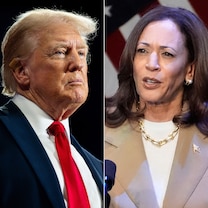9/11 Suspects Could Finally Face Charges
More than 6 years after attacks, charges against six could be filed this week.
WASHINGTON, Feb. 10, 2008— -- As soon as this week the Pentagon plans to file the first charges against up to six men prosecutors believe were behind the Sept. 11th, 2001, terror attacks.
A senior Pentagon official told ABC News the trials by military commission will be held at the highest security -- and most controversial -- prison anywhere: Guantanamo Bay, Cuba.
"You're dealing under a new law with a fumbling regime for trials and really difficult evidentiary issues in the hardest, most emotionally strung criminal case, you know, probably of the century," Benjamin Wittes of the Brookings Institution said.
Defense officials say the charges -- and possibly even the defendants -- could change by the time they are announced.
Those being considered for charges include Khalid Shaikh Mohammed, the alleged mastermind of the attacks; Ramzi bin al-Shibh, the alleged al Qaeda paymaster; Mustafa Ahmed al-Hawsawi, alleged al Qaeda financial and travel planner; Walid bin Attash, alleged bin Laden bodyguard; Ammar al-Baluchi, alleged 9/11 planner; and Mohammad al-Qahtani, the man known as the "20th hijacker."
"The department has been working diligently to prepare cases and bring charges against a number of individuals who have been involved in some of the most grievous acts of violence and terror against the United States and our allies," said Pentagon spokesman Bryan Whitman, who declined to discuss specifically which individuals are to be charged. "The prosecution team is close to moving forward on referring charges on a number of individuals."
Defense lawyers are expected to put CIA interrogations on trial. Mohammad was among three Guantanamo detainees subjected to the mock drowning technique called waterboarding.
"It's clear that the issues of waterboarding, of torture, of secret prisons are going to be front and center in these cases," said Anthony Romero of the American Civil Liberties Union.
The first trials were marred by judges being removed for conflicts of interest and secret evidence the defendants could not see and were eventually overturned by the Supreme Court. But only a handful of people got to see the flaws in that system. Even the man who helped establish the courts and oversaw them for three years said they have been anything but speedy.




